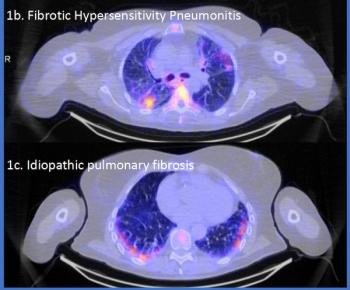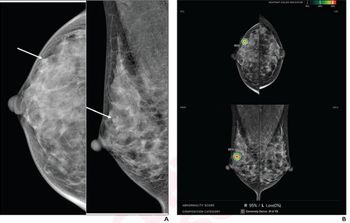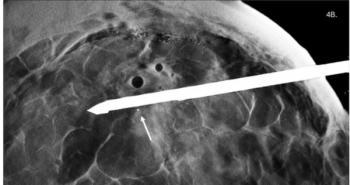
Open MR achieves new luster with novel designs
It’s been awhile since the imaging community paid much attention to open MR. But several products being exhibited this week at the RSNA meeting could perk up interest.
Siemens shows its Magnetom Espree MR 1.5T short-bore scanner.
Philips exhibits its Panorama 1.0T open MR scanner.
It's been awhile since the imaging community paid much attention to open MR. But several products being exhibited this week at the RSNA meeting could perk up interest.Philips' Panorama 1.0T came to Chicago this year not as a work-in-progress, as it had each year since 1999, but as a commercial product. The company plans to begin routine deliveries in early 2005. Hans Kleine Schaars, director of Philips MR radiology business section, says the new product provides image quality and throughput comparable to 1.5T scanners, while offering patients the benefits of an open design."With this product, you do not have to worry about claustrophobia," he said.It will not be the first 1T MR scanner to enter clinical service. Siemens Medical Solutions installed several such systems, but the company abandoned the 1T design before it entered mass production in favor of its Magnetom Espree, a cylindrical 1.5T scanner with a bore so short and wide that executives at the company are calling the system "open."The Espree, which was released commercially in July, has a bore measuring 70 cm in diameter with 30 cm of headroom. It is extraordinarily compact, measuring just 125 cm wide. Vendors have been building increasingly compact MR scanners for the last 15 years, but the Espree is in a class by itself, according to Siemens. The company is characterizing the system as the world's first "open-bore" MR scanner, a cylindrical system with an opening akin to those found on CT scanners. "We are talking about CT-like comfort for a patient going into a 1.5T scanner," said Nancy Gillen, vice president of Siemens' MR division. "We don't know of any patients who have refused a CT scan."
Newsletter
Stay at the forefront of radiology with the Diagnostic Imaging newsletter, delivering the latest news, clinical insights, and imaging advancements for today’s radiologists.














